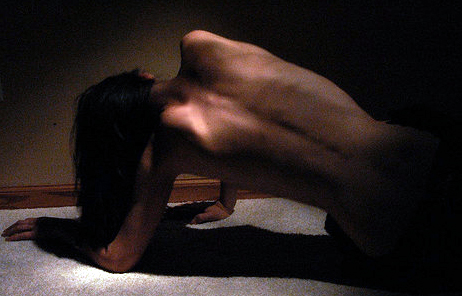by Venessa Luciano
Bronx Journal Staff Writer
A health care worker told Shay, 24, an African American woman, that her long-term obsession with her weight and her abuse of laxatives was just a phase. Surprisingly, Shay’s experience is not so uncommon.
There is a popular misconception that Hispanic and African American women are culturally immune to developing eating disorders, that it is a young white middle-class female’s disease.
“Being a Latina, I was always taught by my mother to embrace my curves,” says Yonkers native Johanna Baez, 19, “but at my private school, I always felt like I wasn’t as skinny as the other size two girls in my class, so I stopped eating at school. My mom thought I was going through a stage.”
Baez is one of many young Hispanic women who suffer from eating disorders that continue to go undiagnosed, and untreated. In fact, many minority women that have eating disorders do not know they have one, and those that do, don’t seek treatment.
A 2003 study published by The American Journal of Psychiatry found that black women classified with eating disorders were unlikely to have received treatment and that there were “ethnic differences” in seeking and actually receiving any treatment for any eating disorders.
Many think that Hispanic and African American women are unlikely to suffer from eating disorders because they embrace food, and would much rather prefer to have a curvier and larger body size. Some minority women that have symptoms of eating disorders are not even aware that they have issues with food.
The women that are aware that they have a problem, rarely ever seek help. “There weren’t many places I could go to around here, where there were other’s like me,” says Shay, “I tried to get help, and I was told by a professional that black girls don’t have eating disorders…it just doesn’t happen to people like me.”
Eating Disorders affect up to 24 million Americans. Ninety percent of those who have eating disorders are women between the ages of 12 and 25.
The National Institute of Mental Health says an eating disorder is “present when a person experiences severe disturbances in eating behavior, such as extreme reduction of food intake or extreme overeating, or feelings of extreme distress or concern about body weight or shape.”
There are three main eating disorders, Anorexia Nervosa, Bulimia Nervosa, and Binge Eating.
Anorexia Nervosa is when a person starves himself or herself to lose weight for long periods of time. Bulimia Nervosa is when person binge eats and then intentionally purges their food. Binge Eating Disorder is when a person compulsively binges, and then self punishes afterwards by excessive dieting. People with eating disorders usually have dissatisfaction with their body, exercise obsessively, abuse laxatives, diet pills, and diuretics.
The same 2003 study found that black women were found to have higher rates of binge eating than white women. It also found that “Health care providers are unfamiliar with eating disorders in ethnic minority groups and are therefore less likely to assess patients for the presence of an eating disorder.”
Dr. Striegel-Moore, a psychology professor at Wesleyan University and author of the 2003 study, claims doctors are just not informed enough about minorities with eating disorders. “Doctors and therapists still operate under the assumption that they don’t; therefore they aren’t prepared to deal with them clinically,” says Striegel-Moore.
In the Bronx many people aren’t aware that there are places to go and seek treatment for an eating disorder. There is an Academy for Eating Disorders located at Montefiore Medical Center that helps both minority women and men.
There is also the American Anorexia and Bulimia Association located in midtown Manhattan available for those suffering with an eating disorder.
If left untreated, eating disorders can cause serious health problems, including kidney failure, respiratory failure, tooth decay, hair loss, heart attacks, and even death. For those who suffer from anorexia nervosa, “the mortality rate associated with the illness is twelve times higher than the death rate of all other causes of death,” claims the National Eating Disorders Association.
“Had I given up and not looked for a second opinion, I might not have gotten help,” says Shay. “I think anyone who thinks they might have a problem should get help, no matter where you’re from or how you look,” she says.




